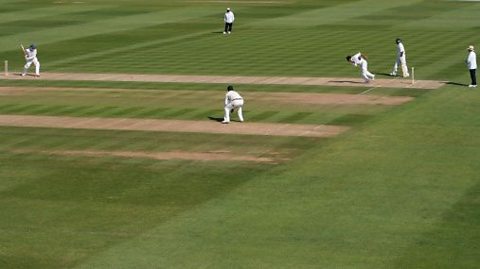One year later than planned, the eyes of the sporting world are on Japan for the delayed 2020 Olympics and Paralympics.
Athletes from around the world are in Tokyo to compete in 33 Olympic and 22 Paralympic sports for gold, silver and bronze medals.
There will be virtually no spectators at any of the venues this year because of Covid-19, meaning Team GB and ParalympicsGB won’t have their usual backing in Tokyo this summer.
But you can still support the likes of Laura Kenny, Max Whitlock and Kadeena Cox at home with some key Japanese phrases. Japanese teacher and social media influencer Sayaka has put together the essentials for 大象传媒 Bitesize, so you can cheer British athletes on.

Want a quick reminder of Sayaka's Japanese phrases? Here are her examples for you to practise. Some Japanese words require both kanji and hiragana characters (more on this below). The kanji represents the main concept of the word, while the hiragana can alter the pronunciation and add further meanings, such as the tense. The hiragana is typically displayed above the kanji, but we have put hiragana in brackets after the supporting kanji in our guide.
| English | Japanese | Romaji (Basic pronunciation) |
|---|---|---|
| Hello (formal) | こんにちは | Kon'nichiwa |
| Please | おねがい | Onegai |
| Please (formal) | お愿いします | Onegaishimasu |
| Thank you | ありがとう | Arigatou |
| Thank you (formal) | ありがとうございます | Arigatō Gozaimasu |
| Great Britain | イギリス | Igirisu |
| Japan | 日本(にっぽん) | Nihon |
| Olympics | オリンピック | Orinpikku |
| Paralympics | パラリンピック | Pararinpikku |
| Good luck / Keep it up / Come on | がんばれ | Ganbare |
| Go! | いけ | Ike |
| Bronze medal | 铜(どう)メダル | Doumedaru |
| Silver medal | 银(ぎん)メダル | Ginmedaru |
| Gold medal | 金(きん)メダル | Kinmedaru |
| Win the gold! | 目指(めざ)せ 金(きん)メダル | Mezase kinmedaru |
| Goodbye (informal) | じゃあね | Jaane |


In Japan, there are four different alphabets: kanji, which derives from Chinese characters and were introduced to Japan around 1500 years ago; hiragana, which is used for certain grammatical points and verb endings; katakana which is used for foreign words and romaji which represents the Roman alphabet.
Each kanji traditionally has two possible meanings, but some can have as many as ten. The Japanese government has an official list of around 2,000 kanji known as joyo kanji – kanji for common use. This list is the minimum amount that a student must learn before leaving high school.

Class of Tokyo 2020: The race to be selected for Team GB
Find out what it takes to become an Olympian as Bitesize goes behind the scenes with five athletes hoping to head to Japan

Class of Tokyo 2020: Beth Tweddle's advice for this year's Olympians
Olympic bronze medallist Beth Tweddle explains what it meant to her to represent her country at the Games.

Five sports you didn’t know were at the Olympics
We take a look at some of the events in history that used to be a part of the Olympics
